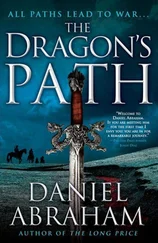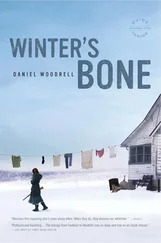Abraham Daniel - A Betrayal in Winter
Здесь есть возможность читать онлайн «Abraham Daniel - A Betrayal in Winter» весь текст электронной книги совершенно бесплатно (целиком полную версию без сокращений). В некоторых случаях можно слушать аудио, скачать через торрент в формате fb2 и присутствует краткое содержание. Жанр: Фэнтези, на английском языке. Описание произведения, (предисловие) а так же отзывы посетителей доступны на портале библиотеки ЛибКат.
- Название:A Betrayal in Winter
- Автор:
- Жанр:
- Год:неизвестен
- ISBN:нет данных
- Рейтинг книги:4 / 5. Голосов: 1
-
Избранное:Добавить в избранное
- Отзывы:
-
Ваша оценка:
- 80
- 1
- 2
- 3
- 4
- 5
A Betrayal in Winter: краткое содержание, описание и аннотация
Предлагаем к чтению аннотацию, описание, краткое содержание или предисловие (зависит от того, что написал сам автор книги «A Betrayal in Winter»). Если вы не нашли необходимую информацию о книге — напишите в комментариях, мы постараемся отыскать её.
A Betrayal in Winter — читать онлайн бесплатно полную книгу (весь текст) целиком
Ниже представлен текст книги, разбитый по страницам. Система сохранения места последней прочитанной страницы, позволяет с удобством читать онлайн бесплатно книгу «A Betrayal in Winter», без необходимости каждый раз заново искать на чём Вы остановились. Поставьте закладку, и сможете в любой момент перейти на страницу, на которой закончили чтение.
Интервал:
Закладка:
north and west-but the vein led down deeper than a well. In its first
generation, when Machi had been the most distant corner of the Empire,
the poet sent there had controlled the andat Raising-Water, and the
stories said that the mines had flowed up like fountains under that
power. It wasn't until after the great war that the poet Manat Doru had
first captured Stone-Made-Soft and Machi had come into its own as the
center for the most productive mines in the world and the home of the
metal trades-ironmongers, silversmiths, Westland alchemists,
needlemakers. But Raising-Water had been lost, and no one had yet
discovered how to recapture it. And so, the pumps.
He again turned his mind back on the trouble. The treadmill pumps were
of his own design. Four men working together could raise their own
weight in water sixty feet in the time the moon-always a more reliable
measure than the seasonally fickle northern sun-traveled the width of a
man's finger. But the design wasn't perfect yet. It was clear from his
day's work that the pump, which finally failed the night before, had
been working at less than its peak for weeks. That was why the water
level had been higher than one night's failure could account for. There
were several possible solutions to that.
Biitrah forgot the cold, forgot his weariness, forgot indeed where he
was and was being borne. His mind fell into the problem, and he was lost
in it. The wayhouse, when it appeared as if by magic before them, was a
welcome sight: thick stone walls with one red lacquered door at the
ground level, a wide wooden snow door on the second story, and smoke
rising from all its chimneys. Even from the street, he could smell
seasoned meat and spiced wine. The keeper stood on the front steps with
a pose of welcome so formal it bent the old, moon-faced man nearly
double. Biitrah's bearers lowered his chair. At the last moment, Biitrah
remembered to shove his arms back into their sleeves so that he could
take a pose accepting the wayhouse keeper's welcome.
"I had not expected you, most high," the man said. "We would have
prepared something more appropriate. The best that I have-"
"Will do," Biitrah said. "Certainly the best you have will do."
The keeper took a pose of thanks, standing aside to let them through the
doorway as he did. Biitrah paused at the threshold, taking a formal pose
of thanks. The old man seemed surprised. His round face and slack skin
made Biitrah think of a pale grape just beginning to dry. He could be my
father's age, he thought, and felt in his breast the bloom of a strange,
almost melancholy, fondness for the man.
"I don't think we've met," Biitrah said. "What's your name, neighbor?"
"Oshai," the moon-faced man said. "We haven't met, but everyone knows of
the Khai Machi's kindly eldest son. It is a pleasure to have you in this
house, most high."
The house had an inner garden. Biitrah changed into a set of plain,
thick woolen robes that the wayhouse kept for such occasions and joined
his men there. The keeper himself brought them black-sauced noodles,
river fish cooked with dried figs, and carafe after stone carafe of rice
wine infused with plum. His guard, at first dour, relaxed as the night
went on, singing together and telling stories. For a time, they seemed
to forget who this long-faced man with his graying beard and thinning
hair was and might someday be. Biitrah even sang with them at the end,
intoxicated as much by the heat of the coal fire, the weariness of the
day, and the simple pleasure of the night, as by the wine.
At last he rose up and went to his bed, four of his men following him.
They would sleep on straw outside his door. He would sleep in the best
bed the wayhouse offered. It was the way of things. A night candle
burned at his bedside, the wax scented with honey. The flame was hardly
down to the quarter mark. It was early. When he'd been a boy of twenty,
he'd seen candles like this burn their last before he slept, the light
of dawn blocked by goose-down pillows around his head. Now he couldn't
well imagine staying awake to the half mark. He shuttered the candlebox,
leaving only a square of light high on the ceiling from the smoke hole.
Sleep should have come easily to him as tired, well fed, half drunk as
he was, but it didn't. The bed was wide and soft and comfortable. He
could already hear his men snoring on their straw outside his door. But
his mind would not be still.
They should have killed each other when they were young and didn't
understand what a precious thing life is. That was the mistake. He and
his brothers had forborne instead, and the years had drifted by. Danat
had married, then Kaiin. He, the oldest of them, had met Hiami and
followed his brothers' example last. He had two daughters, grown and now
themselves married. And so here he and his brothers were. None of them
had seen fewer than forty summers. None of them hated the other two.
None of them wanted what would come next. And still, it would come.
Better that the slaughter had happened when they were boys, stupid the
way boys are. Better that their deaths had come before they carried the
weight of so much life behind them. He was too old to become a killer.
Sleep came somewhere in these dark reflections, and he dreamed of things
more pleasant and less coherent. A dove with black-tipped wings flying
through the galleries of the Second Palace; Hiami sewing a child's dress
with red thread and a gold needle too soft to keep its point; the moon
trapped in a well and he himself called to design the pump that would
raise it. When he woke, troubled by some need his sleepsodden mind
couldn't quite place, it was still dark. He needed to drink water or to
pass it, but no, it was neither of these. He reached to unshutter the
candlebox, but his hands were too awkward.
"There now, most high," a voice said. "Bat it around like that, and
you'll have the whole place in flames."
Pale hands righted the box and pulled open the shutters, the candlelight
revealing the moon-faced keeper. He wore a dark robe under a gray woolen
traveler's cloak. His face, which had seemed so congenial before, filled
Biitrah with a sick dread. The smile, he saw, never reached the eyes.
"What's happened?" he demanded, or tried to. The words came out slurred
and awkward. Still, the man Oshai seemed to catch the sense of them.
"I've come to be sure you've died," he said with a pose that offered
this as a service. "Your men drank more than you. Those that are
breathing are beyond recall, but you ... Well, most high, if you see
morning the whole exercise will have been something of a waste."
Biitrah's breath suddenly hard as a runner's, he threw off the blankets,
but when he tried to stand, his knees were limp. He stumbled toward the
assassin, but there was no strength in the charge. Oshai, if that was
his name, put a palm to Biitrah's forehead and pushed gently back.
Biitrah fell to the floor, but he hardly felt it. It was like violence
being done to some other man, far away from where he was.
"It must be hard," Oshai said, squatting beside him, "to live your whole
life known only as another man's son. To die having never made a mark of
your own on the world. It seems unfair somehow."
Who, Biitrah tried to say. Which of my brothers would stoop to poison?
"Still, men die all the time," Oshai went on. "One more or less won't
Читать дальшеИнтервал:
Закладка:
Похожие книги на «A Betrayal in Winter»
Представляем Вашему вниманию похожие книги на «A Betrayal in Winter» списком для выбора. Мы отобрали схожую по названию и смыслу литературу в надежде предоставить читателям больше вариантов отыскать новые, интересные, ещё непрочитанные произведения.
Обсуждение, отзывы о книге «A Betrayal in Winter» и просто собственные мнения читателей. Оставьте ваши комментарии, напишите, что Вы думаете о произведении, его смысле или главных героях. Укажите что конкретно понравилось, а что нет, и почему Вы так считаете.









